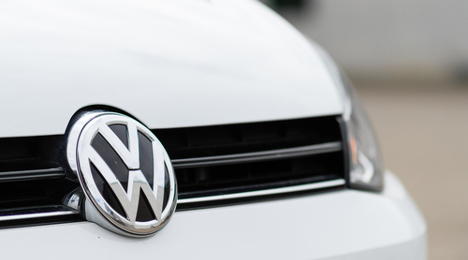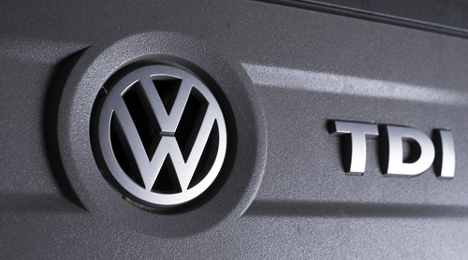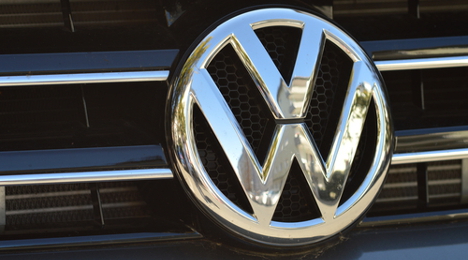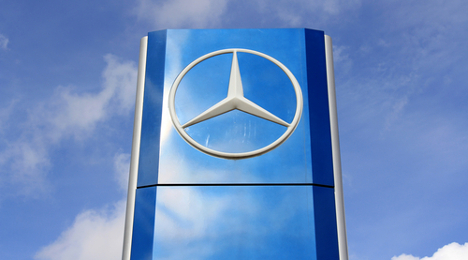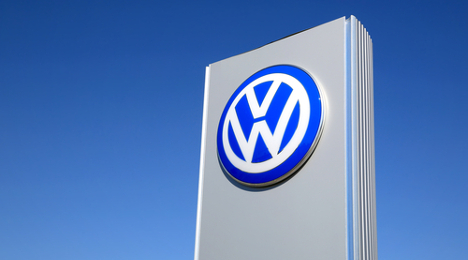Dealers: do you have customers you would like to notify about their vehicle’s recall status, but you’re apprehensive to contact them due to being on the National Do Not Call Registry?
Rest assured: NADA Regulatory Affairs reminds dealers that the “do-not-call” rules do not prohibit dealers from calling consumers about vehicle recalls. As long as the defect repair work involves no cost to the customer, at least.
According to NADA, itself citing the Federal Communications Commission’s ruling from 2005, “calls that encourage the purchase of other goods and service ‘will be deemed a prohibited telephone solicitation.’”
NADA noted that this specific clarification only applies to the National Do-Not-Call rules and is not applicable to the separate restrictions of the Telephone Consumer Protection Act (TCPA) for text messages, pre-recorded calls, calls made to cellphones, or calls made using auto-dialers.
The association urges dealers to consult their legal counsel before making a decision regarding a recall-notification telephone strategy for its affected customers.
Strong dealer-consumer relationships increase recall repair rates
Anita Lienert, a correspondent for Edmunds.com, also shared in a post on the Edmunds site the results of a recent survey conducted by Public Opinion Strategies, on behalf of Auto Alliance and the Association of Global Automakers, suggesting that consumers who have established a relationship with a dealer participate in recalls more often than those who have not established that type of relationship.
Even though time is the only cost to the consumer for most recall repairs, the research sought to find out why roughly 25 percent of owners of recalled vehicles never complete the free repair of their vehicles.
According to the Edmunds post, one key finding from the survey found that many consumers are doing their own “risk assessments” when they receive a recall notice, deciding whether or not it’s worth their time to take their vehicle in for the remedies.
A statement from the Auto Alliance last week said that, “Many survey respondents showed a reduced likelihood to repair a recalled vehicle if they perceived the recall to be ‘low’ or ‘moderate’ risk, saying it seemed to be ‘no big deal.’ Used vehicle owners are less likely to be motivated to respond to recall communications, even when they are aware of a recall on their vehicle.”
According to the survey, consumers are more likely to heed recall repair notifications if the severity of the recall is high, if they are especially reminded that it is free, or if a reminder of open recalls is provided in their insurance renewal notices.
Dealers: Have you found any particularly potent way to convince your customers to bring their vehicles in for recall repairs? Let us know in the comments below or gives us a shout via social media via the links on the left of this page.
Are you prepared for potentially more Volkswagen diesel trade-ins on your lot?
While, of course, there is no guarantee that VW TDI owners will try to trade out of their rides, it's a scenario worth being ready for, at least.
With recent events in mind — including Volkswagen Group of America’s president and chief executive officer Michael Horn stating before a congressional subcommittee on Thursday that it would take at least a year, if not longer, to repair all of the vehicles affected by the recent diesel deceit — consumers may be looking into their options.
And that appears to be what’s happening. In the week after the VW announcement, the number of people looking up their VW TDI’s trade-in value on Kelley Blue Book's website increased by 79 percent compared to the prior week.
Are customers really looking to offload these vehicles before a solid announcement for a fix is made by VW? Or are they just curious how much their vehicle values are dropping? During a conference call with media on Oct. 1, Autotrader senior analyst Michelle Krebs said it’s still too soon to tell.
Jessica Caldwell, director of industry analysis at Edmunds.com, agrees. She also offered up some of her company’s September transaction data in the hopes of providing some clues as to which brands may be the most likely to benefit from a surge of VW owners returning to the market.
Here’s her summary of her findings for September, as shared by Edmunds:
- More than half of VW diesel trade-ins (51.2 percent) went toward another Volkswagen. The loyalty rate is higher for VW diesels than for overall VW trade-ins, in which only 39 percent went toward another VW.
- Those VW diesel trade-ins that defected to another brand were most likely to go toward popular Japanese makes like Toyota, Honda and Subaru.
- 40 percent of VW diesel trade-ins went toward another diesel of any make, while 57 percent of VW diesel trade-ins went toward a gasoline vehicle of any make. Only three percent of VW diesel trade-ins went toward a hybrid or EV.
As far as brands are concerned, Caldwell highlighted that Ford, Honda and Toyota are the top-shopped brands among VW shoppers. And if you’re looking at selling a VW? Mini, Fiat and Audi shoppers were the most interested in reverse cross-shopping for a VW.
It’s also noteworthy that those trading in their TDIs that are interested in staying in a diesel vehicle have shown increased interest in BMW and Chevrolet’s diesel offerings in the last two weeks, with Jetta TDI shoppers looking most often at the Chevrolet Cruze diesel variant. Those considering a VW Golf SportWagen showed the most interested in the VW Tiguan while cross-shopping.
Overall, Edmunds says that it has found that fewer customers shopping for VW’s gas variants have shown an interest in its diesel variants and shoppers of all competitive brands have engaged, with very few exceptions, in less reverse cross-shopping with VW overall in the last two weeks.
Larry Dixon, the senior manager of market intelligence at NADA Used Car Guide, provided his two cents on the situation.
“Unfortunately the relatively small number of VW diesels passing through the used market combined with uncertainty surrounding VW’s plan to bring affected vehicles into compliance make it difficult to pinpoint how disruptive the issue has been to the used VW market thus far,” Dixon said. “To-date, there is some indication that VW auction sales activity has been affected, however, any impact to VW prices remains inconclusive.”
To check out our previous report on how VW has been faring in the auction lanes, click here.
Matthias Mueller, Volkswagen AG’s chief executive officer, rallied the OEM's workforce on Tuesday, announcing to a group of over 20,000 employees at VW’s Wolfsburg, Germany plant that a plan is in the works to remedy the company’s recent diesel emissions scandal.
With a focus on regaining trust and transparency, a news release from the automaker said Mueller told his employees, referring to the group’s various international badges, “in this situation, where we are dealing with four brands and many model variants, care is even more important than speed.”
According to Mueller, the remedies for its customers, whom he says should hear from the company “over the coming days” if their vehicles are affected, have currently been drawn up and will “shortly” be presented to “responsible authorities.”
“In many instances a software update will be sufficient,” Mueller said. “Some vehicles, however, will also require hardware modifications. We will keep our customers constantly informed about the measures and arrange workshop appointments.”
How will fixes affect VW’s reputation?
Mark Dotson, a professor at the Western Michigan University Cooley Law School, said in an analysis from the unversity last week that beyond legal issues, VW’s reputation will rely heavily on how they fix the emission issue.
“Depending on Volkswagen’s fix, assuming the company can remove the emission problem with a modification, then exposure and liability will turn to how satisfied the customers are with the vehicle,” Dotson said. “This will be a test of consumer confidence with the company and its products.
“No doubt there will be class action lawsuits brought on by consumers emphasizing the fraud,” Dotson continued. “Damages on this could range from costs associated with additional emissions testing, decreased value of the vehicle due to the perception that the cars are environmentally unfit, to punitive damages because of the fraud. If there is one area of law, even though the loss here is economic in nature, where courts are most willing to impose penalties, whether by a jury’s determination or pursuant to a statutory consumer protection scheme, it is when it comes to fraud.”
While VW’s diesel range is much simpler in the United States than its counterparts across the pond, it’s still up in the air whether VW will take the less expensive route, employing a software adjustment that will cause the affected TDI engines to meet EPA emissions requirements at the expense of fuel economy and engine performance, or a more costly route by physically modifying the engines with something like urea injection that would help reduce NOx emissions.
“The software change is the least costly option for Volkswagen at this point, and has the potential to affect performance and fuel economy more than the more expensive route of adding urea injection,” noted Matt DeLorenzo, managing editor at KBB.com, in an analysis last week. “I find the use of the word refit interesting, as it implies a hardware change, whereas I think they will be updating the engine control module software to make the engine run in the compliant test mode all the time. The other question is whether or not the refit includes any changes to the catalyst itself to make it more robust.”
According to comments from Fitch Ratings last week, taking the less expensive route could result in much lower resale values and bolster owners’ civil cases against VW and extend the company’s reputational damage. While recalls have historically only affected used-car values in the U.S. for short periods of time, VW’s situation is unique: according to Fitch, “It remains to be seen whether the impact on used-car values could be greater because VW’s actions are being thought of as deceptive.”
Please continue to follow further iterations of Auto Remarketing in both print and digital editions as we continue to follow the political, financial and reputational impact of the developing situation with Volkswagen.
How much is the Volkswagen diesel engine emission controversy impacting its certified pre-owned program?
It may be too early in the process to tell.
On an EPA investigation update section of the Volkswagen of America website, VW said: "Right now, we’ve put a stop sale on all 2.0L 4-cylinder TDI equipped vehicles (new and certified pre-owned), and we’re working with the responsible agencies to obtain approval for the MY16 2.0L TDI vehicles. We are working very hard to get our 4-cylinder TDI business re-started as soon as possible."
As far as the latest CPO numbers, year-to-date figures were still up slightly (1.8 percent) through nine months, and monthly CPO sales in September were down 16.8 percent year-over-year.
But news regarding VW’s issues was public knowledge for only the last 13 days of September, so again, perhaps it’s too early to gauge the overall impact to the automaker’s certified pre-owned program.
At any rate, for any manufacturer’s CPO program, trust and perceived quality are paramount. So, where does VW go from here?
At the time of this writing, representatives from Volkswagen were not available for comment.
However, Alec Gutierrez, Kelley Blue Book’s senior market analyst of automotive insights, shared his thoughts on VW’s CPO program, especially with sales of its TDI (diesel) models affected by the news.
“I think there’s obviously going to be challenges there, especially as it relates to certified pre-owned TDIs,” Gutierrez said in a KBB and Autotrader conference call with reporters last week. “And we know that makes up a pretty good chunk of sales overall for Jetta, and certainly I think it makes up more than 80 percent of Jetta SportWagen sales. I think those models, in particular, are going to be in for a tough time until we know what the impact of the recall is going to be.”
Pricing impact?
Looking at the Cars.com national inventory price figures from just before the VW news broke on Sept. 18 compared to average asking prices at the end of September, the company found a few interesting price changes in TDI listings.
Noting that the prices were set by private sellers and not dealers, just about every model of VW Jetta, Jetta SportWagen, Golf, Beetle and Passat – all VW models that offer both diesel- and gas-powered variants – suffered an average price hit. To be exact, of the 48 different used models investigated, 44 of the models saw average price drops in the 13-day span (of the 24 TDI variants, 22 saw price drops).
Michelle Krebs, senior analyst at Autotrader, had her team investigate the issue on their own site to see if people were listing VW diesel models for cheaper at an attempt to ditch the models.
“At the moment, we saw that private sellers are generally sticking with their prices on the VW diesels that are listed on our site,” Krebs said in the aforementioned call with Gutierrez. “They’ve dropped a little bit, specifically on VW Beetle diesel and the Audi A3 diesel. It looks like what private sellers are trying to do is get as much money as they can. I think what will be interesting to watch is do we see more listings of people wanting to get out of those vehicles? That is something that we’re going to be paying a lot of attention to.”
Gutierrez doesn’t think that values will drop too dramatically.
“I think one thing to consider, too, especially as it relates to the used-car market, is that any given car is only as good as its next monthly price substitute,” Gutierrez said. “I think there is a floor in terms of what’s going to happen with Volkswagen’s values, assuming that they can overcome some of the perception issues that obviously they’re going to have in the near term.
“But ultimately, if it gets to a point where you’re choosing between a relatively full-equipped Jetta or you’re looking at, say, a Corolla or Civic or something else, I don’t think the Jetta’s ever going to drop to a point where it’s a $3,000 priced discount versus a vehicle that offers similar performance and similar utility,” Gutierrez added. “Again, I think there’s always been an expectation that values are going to drop 20 or 25 percent or some huge number, but there is a floor based on competition.”
As Auto Remarketing shared this week, recent data from Kelley Blue Book and Autotrader indicated that VW consumers are trying to get more information about what their vehicle might still be worth, as well.
String Automotive announced new agreements with several large dealer groups on Monday while also highlighting the new local-market focused upgrade to its Dealer Positioning System.
String has entered new enterprise-level relationships with the March Hodge Automotive Group, Feldman Automotive and All Star Automotive Group.
The company’s latest release of its Dealer Positioning System, or DPS, includes a local-market area view to help market within that range. The metro-market area view includes enhancements that aim to help traditional budgets and market share growth plans for both Tier 2 and Tier 3 budgets.
“Though our team had great respect for our vendors, we began placing a great deal of importance on believing only our own metrics for success,” said Kelly Deets, the digital marketing director at Your Auto Giant of New Port Richey, Fla. “At first, the only place we could find ROI-related metrics was through the reports that we received from our digital marketing vendors. After installing the DPS, we are able calculate our wins and loss across our entire advertising budget, customizing the plan based on each store’s best opportunity for growth.”
String also reported a 206-percent growth in year-over-year subscription sales in September for its dealership intelligence platform.
“With the ever-growing technological and digital marketing-related offerings in the vendor space, automotive marketers are under increasing pressure to understand what’s working and what’s not,” said Ken Kolodziej, String’s chief executive officer. “Our growth speaks to the fact that we answer that question for marketing director and VP of operations roles within the mid-major and regional automotive groups.
“With monthly budgets north of $100,000, the return associated with hyper-focused, market-share-driven advertising is too substantial for them to ignore.”
Data-mining and sales-generation platform AutoAlert announced Thursday that it has combined its efforts with MotoFuze.
The latter is best known for FuzeCast, its customer experience management (CEM) solution, that can combine content marketing, reputation management, social selling, employee engagement and dealership communication and integrate with any existing customer relationship management solution.
Through their partnership, the two companies hope to provide dealers with influential car-shopper insight for in-market, in-equity customers.
One example provided by the company is in regards to how AutoAlert and ProfileFuze interact, allowing dealers to view and manage the following information from any CRM:
- Analysis of all CRM leads marked lost, highlighting customers back in-market
- Makes/models customers are shopping and equity position in their existing vehicle
- Information about customers' previous dealership interactions, including online reviews
- Social connections with the dealership to help deliver a better customer experience
"Dealers using AutoAlert currently access deep customer intelligence that can boost vehicle sales 10 to 20 percent or more," said Brian Skutta, chief executive officer at AutoAlert. "Adding ProfileFuze data further enhances this intelligence by identifying current customers who are in-market shoppers, often times before they have had a chance to engage with the competition."
Todd Crossley, the president and owner of Gary Crossley Ford in Kansas City, Mo., told AutoAlert that a lot of his company’s growth in the last year can be directly attributed to FuzeCast and AutoAlert working together.
"This combination of tools keeps a constant watch over my entire consumer database indicating which current or potential customers are both in equity and currently shopping for a vehicle,” Crossley said.
"These 'hot' customer leads are added to the dealership CRM as a new or reactivated opportunity," he continued. "This makes it easy to measure their overall effectiveness. These tools are tracking to represent 20 percent of my total sales for the year — that's a huge number.”
AutoAlert and MotoFuze will be present at the Digital Dealer 19 Conference and Expo from Monday to Wednesday at the Paris Las Vegas Hotel & Casino.
Continuing the theme of digital proliferation in the automotive industry, The Appraisal Lane announced Wednesday that the Gettel Automotive Group in Florida is the newest dealer group to put the company’s trade and communications platform solutions to task.
Gettel has rolled out the The Appraisal Lane system across all 11 of its dealerships in the Sarasota, Bradenton, Gainesville, and Ocala markets of the Sunshine State.
With TAL’s solution, Gettel’s employees can now post pre-owned inventory and receive quick cash offers from TAL’s network of appraisers.
“We’re extremely pleased to support Gettel Automotive Group’s daily business operations, and we look forward to improving its business and enhancing its consumer offerings,” said Jeff Risner, TAL’s co-founder and chief executive officer. “Until now, the wholesale used-car appraisal and acquisition process was inefficient. The Appraisal Lane is transforming this process by providing dealers like Gettel with the most accurate used-car offers, quickly and easily, in a fully optimized mobile platform that makes it easy for them to conduct business virtually anywhere, at any time.”
Kurt Fisher, Gettel’s pre-owned vehicle operations manager, says he looks forward to the future business opportunities that TAL brings to his business in the form of increased sales and improved customer service.
“There’s a confidence level and validation that comes with using The Appraisal Lane platform to put the most accurate numbers on our used-car inventory, and on hot trades when the customer is physically sitting at the sales desk ready to transact,” Fisher said. “In addition to accurately valuing our full spectrum of used inventory, and getting cash offers in the process, The Appraisal Lane enables us to move aged inventory much faster than before. It has been a great tool for us so far.”
For those unfamiliar with The Appraisal Lane’s offerings, at its core, dealers and auctions can utilize TAL in three different ways:
- Submit vehicles for appraisal. Whether those are pending trade-ins, stubborn vehicles on the lot that are proving to be a tough sell, cars that didn’t sell on the auction block, or anything in between. Depending on the situation, TAL will respond with a cash offer within 10 to 15 minutes. Many times, those cash offers stem from outside buyers, which typically include dealer or auction partners.
- Buying cars. TAL has partnerships with many dealerships and a handful of auctions, some of which only utilize TAL services to buy inventory.
- White label customers. Dealerships or dealer groups seeking to utilize the TAL platform to power their own internal trade network can license a solution from TAL.
TAL is optimized for mobile use – appraisal submissions, purchase offers and communications between dealers, appraisers and wholesale buyers can be managed completely from a phone, tablet or computer. It tracks sales info, like costs, transportation, and profit and loss information, along with fulfillment channels through which used-vehicles are sold, including direct-to-dealer, physical auctions and online auctions.
That’s just the tip of the iceberg — stay tuned to upcoming digital and print editions of Auto Remarketing as we take an up-close and personal look at some of the other digital pioneers in the industry.
With Dealer Car Search’s new “website texting” feature for its website customers, the company aims to improve the line of online communication between customers and the dealership.
That’s according to Rick Wilson, the chief executive officer at Dealer Car Search, whose website texting solution links interested customers online directly to a salesperson in the office or on the lot.
"The bottom line is consumers only want to interact with the dealership after they have first searched the website and found the car in which they are interested,” Wilson said.
By offering access to website texting buttons on search results pages and vehicle detail pages, Wilson believes this is the best time to connect customers to the dealership as well as providing them with improved service quality.
Dealer Car Search says that customers can initiate the texting feature from desktop, tablet or smartphone using a round robin system that cycles text leads through a rotation of salespeople.
“So far the results have been astounding and many participating dealers are seeing an immediate increase in consumer engagement in the form of increased leads and sales,” Wilson said.
For more information on the solution, visit the Dealer Car Search site here.
Group 1 Automotive announced Monday its acquisition of a Mercedes-Benz store in Georgetown, Texas.
Part of the greater Austin metropolitan area, the dealership will continue to operate as Mercedes-Benz of Georgetown.
The store is expected to generate $100 million in estimated annual revenues.
“We are delighted to strengthen our relationship with Mercedes-Benz and further expand our scale in the Austin metropolitan market, which leads the nation as one of America’s fastest-growing cities,” said Earl Hesterberg, Group 1’s president and chief executive officer.
Mercedes-Benz of Georgetown also features a Mercedes-Benz Sprinter commercial vehicle franchise as well as a Smart car franchise.
One item on the minds of many VW dealers in the United States going into Friday’s board meeting of Volkswagen AG was whether or not the rumors that current U.S. VW chief executive officer Michael Horn would be leaving the company were true.
As it turns out, that’s not the case, as VW announced that the company will be restructuring in the U.S., with activities in the U.S., Mexico and Canada being consolidated as one new North American region with Winfried Vahland, formerly the chairman of the board of directors at Skoda, as the leader of the region. By taking on this role, Vahland becomes a member of the VW brand board of management.
At this time, Horn will remain as the president and chief executive officer of Volkswagen Group of America.
As for the global operations, Matthias Mueller, the chairman of Porsche AG, has been named the new CEO of Volkswagen AG, replacing former CEO Martin Winterkorn, who resigned Wednesday.
"My most urgent task is to win back trust for the Volkswagen Group – by leaving no stone unturned and with maximum transparency, as well as drawing the right conclusions from the current situation,” Mueller said. “Under my leadership, Volkswagen will do everything it can to develop and implement the most stringent compliance and governance standards in our industry. If we manage to achieve that then the Volkswagen Group with its innovative strength, its strong brands and above all its competent and highly motivated team has the opportunity to emerge from this crisis stronger than before."
In an announcement on Friday, VW also stated that its Supervisory Board recommended the immediate suspension of several of its employees during an investigation it has authorized its chairman to mandage for German and U.S. lawyers to "objectively investigate and fully clarify the manipulation of emissions data of diesel engines." The names and positions of the employees were not released.
"The test manipulations are a moral and political disaster for Volkswagen,” said Berthold Huber, the deputy chairman of the Supervisory Board. “The unlawful behavior of engineers and technicians involved in engine development shocked Volkswagen just as much as it shocked the public. We can only apologize and ask our customers, the public, the authorities and our investors to give us a chance to make amends."
The company also announced that Christian Klingler, formerly a member of the board of management of Volkswagen Aktiengesellschaft with responsibility for sales and marketing and a member of the VW brand board of management with the same responsibilities, is leaving the company with immediate effect due to “long-term planned structural changes and as a result of difference with regard to business strategy” unrelated to recent events.
Juergen Stackmann, previously chairman of SEAT, will take over Klingler’s role as member of the VW brand board of management. Stackmann is succeeded by Luca de Meo, currently Audi AG board of management member for sales and marketing. These personnel changes will be effective as of October 1.
For the full listing of VW’s structural changes, you can check them out on the VW site here.


